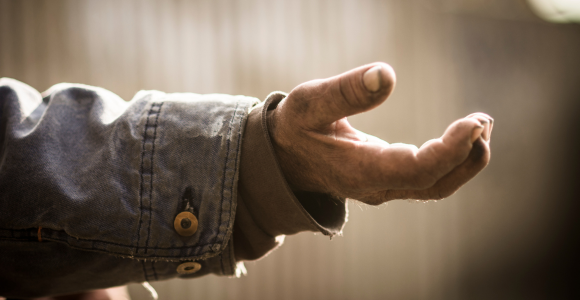
For those curious, early Christians had three major views about what would happen to a person who rejected Jesus in the next life. The minority views were that these people would face eternal torment or simply cease to be. The majority of Jesus followers believed that all people would eventually be restored. They were hopeful universalists.
Welcome Readers! Please subscribe to Social Jesus Here.
This is Part 2 of Caring for Those Outside the Tribe
(Read this series from its beginning here.)
Today we also have the reality that many Christians conflate rejecting Jesus with rejecting Christianity. Today, some Christians don’t believe in turning the other check themselves, much less a God who would do so. Today, a multitude of Christians are looking forward to their enemies being destroyed or tormented. This way of looking at our world and those with whom we share our world can only leech into other areas of our lives. Christians have often shown that attitude in the way they have historically viewed and related to those different from them. Whether in relating to those of other religions, across racial and cultural differences, or across differences in gender or sexuality, many Christians have struggled to relate to differences in life-giving ways. Our passage this week challenges us to consider our spirit when we relate to those different from ourselves.
Next, having removed threat as a motive for following Jesus, we encounter three characteristics of what it means to follow the Jesus of these stories. Jesus first comments on his homelessness.
This epigram is reminiscent of the Cynic philosophers who probably wandered about Galilee in Jesus’ day. The Cynics, who taught by precept and example, were noted for the simple life: they went about barefooted, often with long hair, with a single garment, and frequently slept on the ground. Cynicism was a school of Greek philosophy founded in the fifth century B.C.E. by a pupil of Socrates. It lasted for a thousand years and was widely influential. Cynics typically wore threadbare cloaks, and carried begging bags and staffs. These spartan figures lived life at its simplest-without house, family, bed, undershirt, or utensil. (The Five Gospels, Robert W. Funk, p. 316)
The Cynics may have embraced a simple way of living out of philosophical disagreements with the society around them, but there is a difference between their lifestyle and the one Jesus lived in the gospels. Whereas Cynics were seeking independence from the system, Jesus drew attention to our dependence on one another. We need each other to survive. We are connected to each other, a part of one another, whether we want to be connected or not. Jesus’ statement was also an act of solidarity with poor people forced to live this way too. Cynics choose to live like this. Poverty forced others to.
In the last two parts of the passage we encounter another characteristic of following Jesus. We’ll pick up there in Part 3.
Are you receiving all of RHM’s free resources each week?
Begin each day being inspired toward love, compassion, justice and action. Free.
Sign up at HERE.













